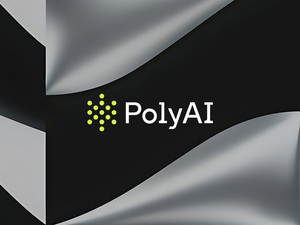Language processing has witnessed remarkable advancements in artificial intelligence. Poly AI, with its impressive capabilities, has emerged as a leading player in this field. However, the dynamic landscape of AI demands the exploration of diverse options. This article delves into the realm of Poly AI alternatives, presenting a curated selection of top-notch platforms that offer AI-powered language services.
From text generation and translation to sentiment analysis and chatbot development, these alternatives cater to a wide range of needs, empowering businesses and individuals to harness the potential of AI for language-related tasks.
Top 10 Poly AI Alternatives
Here are the best poly AI alternatives that are efficient at their job. Now let’s have a look at them and choose the one that will fulfill your needs.
1. OpenAI
- Key Features: GPT-3, Codex, DALL-E 2
- Strengths: Known for its cutting-edge research and powerful models, particularly in text generation and code completion.
- Best suited for Developers, researchers, and businesses seeking advanced AI capabilities.
2. Google AI
- Key Features: BERT, LaMDA, PaLM
- Strengths: Backed by Google’s vast resources and expertise, Google AI offers a wide range of language models and tools.
- Best suited for: Businesses looking for scalable AI solutions and integration with Google Cloud services.
3. Amazon Web Services (AWS) AI
- Key Features: Amazon Lex, Amazon Polly, Amazon Comprehend
- Strengths: Provides a comprehensive suite of AI services within the AWS ecosystem, making it easy to integrate with existing infrastructure.
- Best suited for: Businesses using AWS and seeking AI solutions that align with their cloud strategy.
4. Microsoft Azure AI
- Key Features: Azure Cognitive Services, Azure Bot Service, Azure Machine Learning
- Strengths: Offers a wide range of AI tools and services, including natural language processing, speech recognition, and machine learning.
- Best suited for: Businesses that are already heavily invested in Microsoft products and services.
5. IBM Watson
- Key Features: Watson Assistant, Watson Natural Language Understanding, Watson Speech to Text
- Strengths: Known for its enterprise-grade AI solutions and focus on industry-specific applications.
- Best suited for Large enterprises seeking AI solutions to address complex business challenges.
6. Hugging Face
- Key Features: Transformers library, Model Hub
- Strengths: A community-driven platform for sharing and experimenting with machine learning models, especially in the NLP domain.
- Best suited for: Developers and researchers looking for a flexible and open-source environment for AI experimentation
7. Dialogflow
- Key Features: Conversational AI platform for building chatbots and voice assistants
- Strengths: User-friendly interface and integration with Google Cloud Platform
- Best suited for: Businesses looking to create engaging and interactive conversational experiences
8. Replicate
- Key Features: Marketplace for AI models, making it easy to find and deploy pre-trained models
- Strengths: Wide range of models available, including NLP, computer vision, and generative AI
- Best suited for: Developers and businesses seeking quick and easy access to AI capabilities
9. TensorFlow Hub
- Key Features: Repository of pre-trained machine learning models
- Strengths: Open-source framework, providing flexibility and customization options
- Best suited for: Developers and researchers looking to build custom AI models based on existing foundations
10. NLP Cloud
- Key Features: API-based platform for NLP tasks, including sentiment analysis, entity recognition, and text classification
- Strengths: Easy to integrate into existing applications and scalable infrastructure
- Best suited for: Businesses seeking a hassle-free way to implement NLP capabilities
Conclusion
while Poly AI offers impressive capabilities in AI-powered language services, numerous alternatives provide diverse features tailored to different needs. From OpenAI’s cutting-edge models to Google AI’s scalability and AWS’s cloud integration to IBM Watson’s enterprise focus, each platform brings unique strengths to the table. Whether you’re a developer, researcher, or business, exploring these options can help you find the right AI solution for your specific language processing requirements. By evaluating their strengths and suitability, you can unlock the full potential of AI in your projects.
Read More Related Artices
10 Top Free Looksmax AI Alternatives
How To Get Free Discord Nitro In 2024: Five Legitimate Ways
How To Download Netflix For MacBook Air




















